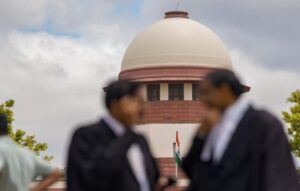The Delhi High Court Raises Concerns Over DeepSeek: A Deep Dive into the AI Chatbot Controversy
On Wednesday, the Delhi High Court observed that artificial intelligence (AI) is a “dangerous tool” in anybody’s hands, whether Chinese or American while hearing a petition that sought to direct the Indian government to block access to DeepSeek, a Chinese AI chatbot. This development highlights the growing concerns over AI technologies’ security and privacy implications, particularly in the context of DeepSeek’s recent data leak controversy.
What is DeepSeek?
DeepSeek is a Chinese AI startup recently gaining significant attention for its AI chatbot, which competes with established platforms like OpenAI’s ChatGPT. The company’s flagship product, DeepSeek-R1, is an advanced AI model that offers performance comparable to leading AI systems but at a fraction of the cost. This has led to its rapid adoption and popularity, with the DeepSeek app topping the charts on Apple’s App Store.

The Data Leak Incident
In a major security breach, DeepSeek exposed a critical database containing over one million sensitive records, including user chat histories, API keys, backend system details, and operational metadata. This database was publicly accessible without any authentication, allowing anyone with knowledge of the database URLs to extract the data. The exposed data included plaintext logs of user interactions, API secrets, and backend service details, posing significant risks to user privacy and company security.
The breach was discovered by cybersecurity firm Wiz Research, which promptly notified DeepSeek. The company secured the database within an hour of being informed, but it remains unclear whether any unauthorized individuals accessed the data before the breach was addressed.
Legal and Security Implications
The Delhi High Court’s observation underscores the broader concerns about the security and privacy risks associated with AI technologies. Justice Tushar Rao Gedela highlighted the vulnerabilities of data in the digital age, noting that much of the digital world operates within the dark web. The court’s stance reflects the need for robust regulatory frameworks to address these risks and protect user data.
The petitioner, Bhavna Sharma, argued that DeepSeek’s data leak poses a direct infringement of the right to privacy and threatens the confidentiality of government data and documents. This raises questions about the adequacy of current security measures and the potential for misuse of sensitive information, particularly given DeepSeek’s Chinese origin and the geopolitical implications.
Global Concerns and Responses
The DeepSeek controversy is not limited to India. Similar concerns have been raised in other countries, with some policymakers calling for bans or stricter regulations on AI technologies developed by foreign entities. In the United States, lawmakers have introduced legislation to ban DeepSeek and other AI applications developed by its parent company, citing national security risks.
Conclusion
The DeepSeek data leak incident serves as a stark reminder of the critical importance of cybersecurity in the AI industry. As AI technologies become increasingly integrated into various sectors, ensuring the security and privacy of user data must be a top priority. The Delhi High Court’s observation highlights the need for comprehensive regulatory frameworks and robust security measures to mitigate the risks associated with AI technologies. As the world grapples with the rapid advancements in AI, it is essential to strike a balance between innovation and security to protect individual privacy and national interests.